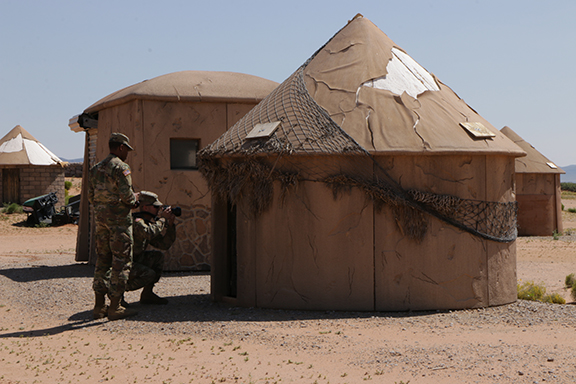The 16-year-old war in Afghanistan is the longest in U.S. history. More than 2 million soldiers have gone to the war zones of Iraq and Afghanistan since 2001 with a great many of them deploying more than once.
The contrast between life in the U.S. and in Afghanistan can be stark, but soldiers have learned to appreciate some of the experience with a culture steeped in ancient traditions.
First Sgt. Jessica Cho was deployed to Afghanistan in 2012. She was born in San Francisco and grew up in Buenos Aires, Argentina, but said her multinational experience didn’t prepare her for Afghanistan’s humble lifestyle.
“It was very shocking to see that they still have, in some villages, mud buildings and everything is very rudimentary. The way they cook, the bowls are made out of clay,” Cho said. “As toys they have little pebbles and rocks and they were using it as marbles. It was sad to see them happy – if that makes sense – because they were so happy with so little, compared with what we’re used to.”
Before deployment the Army provides cultural classes that are meant to help acclimate U.S. soldiers to Afghanistan ways. The classes cover religion and the basic social standards of the Afghan people.
“Bottom line, we are there as an invitation of the government. It is our responsibility to be trained, to know their sensitivities on that location,” said Lt. Col. Emmanuel Ortiz, who has served twice in Afghanistan.
Training includes learning to pronounce the local names as well as how to approach and sit with people and how to respect their customs and traditions. Ortiz said it is simply following the Golden Rule of respecting others the way you would want them to respect your traditions.
“In Ramadan they cannot eat, so as a respect the first thing you do is you do not eat in front of them,” Ortiz said. “We should never say anything that should be offensive just like we don’t want them to say any offenses against us.”
Cho remembers some of the men were friendly and open to conversation, while others looked away while in the presence of U.S. soldiers – especially female soldiers. She was struck by how reserved the women were and that she never saw one walk unaccompanied.
“It was more a shock from them to see so many females – even with so many years of U.S. troops being in the area – they still get quite shocked or interested of the fact that there are women serving.”
Cho said she appreciated the hospitality of many of the people she met.
Sergeant Alon Humphrey, a public affairs specialist, was deployed to Afghanistan from 2014 to 2015. He often remembers the bullets and missiles flying over his head but he also thinks of the warm smiles and the courteous greetings of the Afghans.
“They have their way of living, we have our way of living. On the outside looking in they are a happy people, they do what they do, and they love what they love,” Humphrey said.
Part of that happiness was the Afghans love of soccer. The compound where Humphrey was stationed hosted small soccer tournaments. The Afghans always outscored the American soldiers. Humphrey regrets that they never had the opportunity to play basketball or football and see if they could win a match.
While in Afghanistan Humphrey never had the chance to try out the local food but was content with the lobster, steak, and Pizza Hut the U.S. Army provided.

